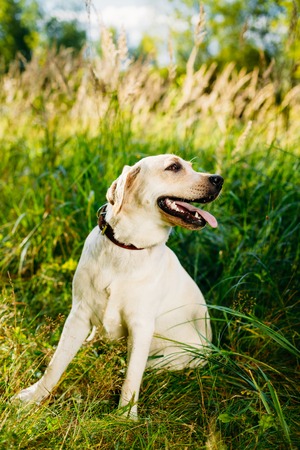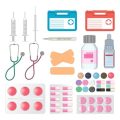Understanding UK Pet Safety Standards
When it comes to choosing accessories and supplies for your small pets in the UK, safety should always be your top priority. The British government has established a robust framework of regulations, certifications, and guidelines designed to protect both pets and their owners. Understanding these standards is crucial for making informed purchasing decisions and ensuring the well-being of your furry companions.
At the core of pet safety in the UK are the Animal Welfare Act 2006 and The General Product Safety Regulations 2005. These set out fundamental requirements that all pet products must meet, including non-toxicity, sturdy construction, and appropriate design for intended use. Additionally, reputable suppliers often comply with voluntary certifications such as the British Standard (BS EN) for pet accessories, which signal a higher level of quality assurance.
When shopping for small pet accessories—be it cages, toys, bedding, or feeding equipment—look for labels or information indicating compliance with these legal standards. Many UK retailers also provide guidance on safe use and maintenance, helping you stay compliant with local laws while promoting a healthy environment for your pets. By understanding and prioritising these safety benchmarks, you can feel confident that your choices support not just comfort but also long-term health and security for your beloved animals.
2. Materials Matter: Choosing Safe & Non-Toxic Products
When it comes to selecting small pet accessories and supplies in the UK, prioritising materials that are both safe and non-toxic is essential for your pets health and wellbeing. Many common household items, such as cheap plastics or painted toys, may contain chemicals that can be harmful to pets—especially if chewed, licked, or ingested. As a responsible pet owner, opting for products crafted from high-quality, pet-friendly materials helps create a safer environment for your furry companions.
Understanding Pet-Safe Materials
Pet-safe materials are those free from toxic dyes, harmful chemicals, and sharp components. In the UK market, reputable brands clearly label their accessories as non-toxic and compliant with British safety standards (such as the British Standards Institution—BSI). Consider materials like natural wood (untreated and pesticide-free), food-grade stainless steel, BPA-free plastics, and organic cotton fabrics. These options are less likely to cause allergic reactions or digestive issues if accidentally ingested by curious pets.
Common Safe Materials for Small Pet Accessories
| Material | Key Benefits | Best For |
|---|---|---|
| Stainless Steel | Non-porous, rust-resistant, easy to clean | Bowls, cages, water bottles |
| BPA-Free Plastic | Chemical-free, lightweight, durable | Toys, tunnels, exercise wheels |
| Natural Wood (Untreated) | Chewable, safe if sourced properly | Chew toys, climbing structures |
| Organic Cotton | Soft, hypoallergenic, washable | Bedding, hammocks, nesting material |
| Ceramic | Stable, chew-proof, easy to sterilise | Dishes, hideouts |
Selecting Supplies for UK Home Environments
The UKs variable climate means that moisture resistance and ease of cleaning are crucial when choosing accessories. Stainless steel and ceramic are ideal for humid kitchens or conservatories due to their mould-resistant properties. For wooden accessories, always check they are labelled as ‘pet-safe’ and haven’t been treated with harmful preservatives. Bedding should be machine-washable to keep odours at bay in smaller British homes. By selecting the right materials tailored to both your home environment and your pet’s needs, you help ensure a healthy and happy life for your little companion.
![]()
3. Durability for British Weather and Active Pets
When it comes to choosing accessories and supplies for small pets in the UK, durability is just as important as safety. The British climate is famously unpredictable—one minute it’s sunny, and the next, your pet’s enclosure could be exposed to rain, wind, or even a sudden cold snap. This means that products must not only endure energetic play but also withstand the elements.
Weather-Resistant Materials Matter
Look for items made from weather-resistant materials like stainless steel, powder-coated metal, robust plastics, or treated wood. These materials are less likely to rust, rot, or degrade quickly when exposed to dampness or fluctuating temperatures. If your pet spends time outdoors, consider shelters and runs with waterproof roofs and elevated bases to prevent waterlogging and mould.
Built to Last: For Playful & Curious Pets
Small pets such as rabbits, guinea pigs, ferrets, and hamsters are known for their curiosity and energy. Accessories like tunnels, exercise wheels, chew toys, and climbing structures should be sturdy enough to cope with daily wear and tear. Avoid flimsy plastic accessories that crack easily or soft woods that can be gnawed apart in days. Instead, opt for heavy-duty fittings and secure fixings that won’t come loose during vigorous use.
Practical Tips for UK Pet Owners
Before purchasing, check product reviews from other British pet owners—these often highlight how well an item stands up to local conditions. Also, inspect seams and joints for strength; reinforced stitching or welded joints add longevity. Remember that investing in quality now can prevent accidents and reduce the need for frequent replacements later.
By selecting durable and weather-resistant accessories tailored for the UK’s unique environment and your pet’s active lifestyle, you’ll help ensure both their safety and comfort year-round.
4. Sizing and Comfort: What UK Pet Owners Should Know
When it comes to ensuring the safety and wellbeing of your small pets, choosing accessories that are appropriately sized and comfortable is crucial. Ill-fitting harnesses, cages, beds, or toys can lead to discomfort, stress, and even injury. Here are some essential tips for UK pet owners to keep in mind when selecting safe and durable accessories for popular small pet breeds such as rabbits, guinea pigs, hamsters, and ferrets.
Importance of Proper Sizing
Just like humans, small pets need accessories that fit their unique size and shape. Accessories that are too tight can restrict movement or cause chafing, while those that are too loose may pose entrapment risks or simply be ineffective. Always refer to the manufacturer’s sizing guide and measure your pet accurately before purchasing any accessory.
Common Sizing Guidelines for Popular UK Small Pets
| Pet Breed | Accessory | Sizing Tips |
|---|---|---|
| Rabbit (e.g., Mini Lop) | Harness | Measure around the chest and neck; ensure two fingers can fit under the strap for comfort. |
| Guinea Pig | Cage | Minimum 120 x 60 cm for two guinea pigs; opt for solid flooring to prevent foot injuries. |
| Syrian Hamster | Wheel | At least 28 cm diameter to avoid spinal issues; solid surface preferred over wire mesh. |
| Ferret | Bedding | Select soft, washable fabrics; bedding should allow the ferret to stretch out fully. |
Comfort Considerations for All-Weather UK Conditions
The UK climate can be unpredictable. For outdoor enclosures, ensure they provide adequate shelter from rain, wind, and cold temperatures. Bedding materials should be warm in winter yet breathable in summer. Check regularly for dampness or mould, which can compromise both comfort and health.
Tips for Ensuring Comfort and Safety:
- Regular Checks: Inspect accessories weekly for signs of wear or damage.
- Avoid Overcrowding: Allow ample space per animal to reduce stress and aggression.
- Adjust as They Grow: Young pets will quickly outgrow certain items—replace or resize as necessary.
- Look for CE Marking: In the UK, products with a CE mark meet basic safety standards.
- Consult Your Vet: If unsure about sizing or material safety, seek professional advice tailored to your specific breed.
Selecting the right size and focusing on comfort not only ensures your pet’s safety but also supports their overall wellbeing. By following these guidelines, UK pet owners can create a secure, healthy environment where their small companions can thrive.
5. Spotting Reliable UK Brands and Trusted Retailers
When it comes to selecting safe and durable accessories for your small pet, choosing reputable British brands and trusted local retailers is essential. The UK boasts a robust pet care industry, with many companies committed to upholding high safety standards and animal welfare regulations. Prioritise brands that are transparent about their materials, manufacturing processes, and safety testing protocols. Look out for well-established names such as Rosewood, Ancol, or Burgess, which are recognised for their dedication to quality and innovation in the small pet sector.
How to Identify Reputable Brands
Begin by researching brands that clearly display compliance with UK and EU safety standards on their products or websites. Trustworthy companies often provide detailed product information, including origin of materials, certifications, and maintenance guidelines. Avoid generic or unbranded items with little-to-no safety assurances.
Shopping Local: Supporting Community Pet Shops
Visiting independent pet shops or specialist small animal stores not only supports the local economy but also offers personalised advice from knowledgeable staff. These shops tend to carefully curate their inventory, focusing on reliable suppliers and products tested for UK conditions. Don’t hesitate to ask questions about product origins, recalls, or recent customer feedback.
Reading Customer Reviews: A Vital Step
Before making a purchase, consult online reviews from fellow UK pet owners on platforms like Trustpilot, Google Reviews, or dedicated pet forums. Pay attention to recurring comments regarding product longevity, safety features, and any issues encountered. Verified purchase reviews are particularly valuable for an honest perspective on how accessories perform in real-life settings. Remember, consistently positive feedback from British consumers is a strong indicator of a trustworthy brand or retailer.
6. Regular Maintenance and Safe Use at Home
Keeping your small pet’s accessories and supplies in top condition is essential for their ongoing safety and wellbeing, especially within the unique environment of a UK household. Regular maintenance not only prolongs the life of these items but also ensures that your pets are not exposed to unnecessary hazards. To begin with, establish a routine for inspecting all pet accessories, such as cages, water bottles, food bowls, bedding, harnesses, and toys. Check for signs of wear and tear, loose parts, sharp edges, or materials that could be chewed off and swallowed. In UK homes where temperature and humidity can fluctuate, pay special attention to any wooden or fabric items that may develop mould or dampness.
Best Practices for Cleaning and Upkeep
Adopt a consistent cleaning schedule based on the manufacturer’s recommendations and the specific needs of your pet species. Use pet-safe disinfectants commonly available from UK retailers to avoid toxic residues. For example, food and water containers should be washed daily, while cages and habitats require weekly deep cleans. Replace soiled or damaged bedding immediately to prevent infections or respiratory issues common among small mammals.
Regular Safety Checks
Conduct monthly safety checks of all electrical components like heat mats or lighting used for reptiles and rodents. Ensure plugs, wires, and sockets comply with UK standards (such as BS 1363), and place them out of reach from curious pets. For outdoor hutches or runs, inspect locks and mesh for rust or breakage—this is particularly important in the damp British climate which can accelerate corrosion.
Safe Usage Within the Household
Place pet accessories in areas free from draughts, direct sunlight, and potential hazards such as household cleaners or houseplants known to be toxic to animals (like daffodils or lilies). Encourage all family members to handle accessories carefully; teach children how to interact safely with both pets and their equipment. If you have other pets—such as dogs or cats—ensure small animal enclosures are secure and inaccessible to avoid stress or injury.
By prioritising regular maintenance and safe usage practices tailored for UK homes, you create a secure environment where your small pets can thrive happily and healthily.

